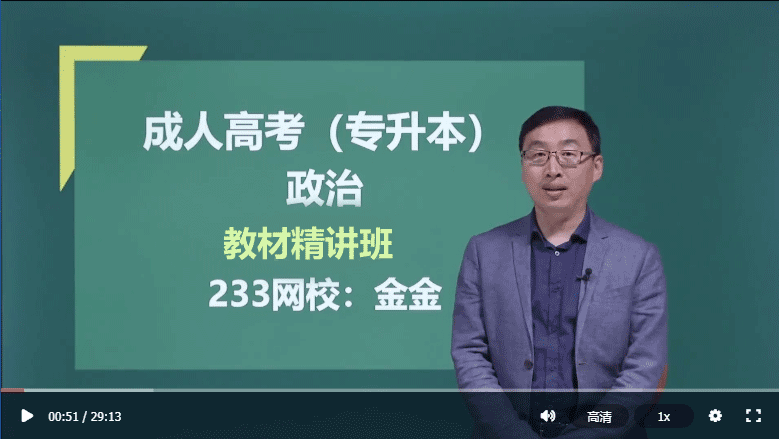цфККщЋшфИхцЌшБшЏхЄфЙ шЕцхфИ
уу7. тI like the film.т
уут________.т
ууA. Nor do I B. Neither do I C. Either do I D. So do I
уучцЁ D
уу8. No sooner _______ got to the station than it began to rain heavily.
ууA. had I B. have I C. I had D. I have
уучцЁ A
уу9. ________яМ Mr. Brown couldn't keep the shop properly.
ууA. As he worked hard B. As he worked hardly
ууC. Hard as he worked D. Hardly as he worked
уучцЁ C
уу10. Hardly _______ when the bus suddenly pulled away.
ууA. they had got to the bus stop B. they got to the bus stop
ууC. did they get to the bus stop D. had they got to the bus stop
ууpull away хМшЕАяМчІЛхМ
уучцЁ D
уу11. тEric didn't want to miss the class.т
уут_______ did Bill.т
ууA. Either B. Whether C. Neither D. No
уучцЁ C
уу12. тJane has certainly been working hard.т
уут_______.т
ууA. So have her brothers B. So her brothers have
ууC. Her brothers have too D. So have been her brothers
уучцЁ A
уухшЃ хЅфИЛшІчЈфКфИЄчЇхКхяМ
ууяМ1яМsoяМ neitherяМ norхМхЏМчччЅхЅу
уушчхКцГЈцччЅхЅфИхЉхЈшЏчщцЉяМх ЖцЖцхОхОчБхщЂчхЅххГхЎяМхухЄцАчБх ЖхщЂчфИЛшЏхГхЎу
уу1.Distrust can be contagiousяМфМ цчяМу But so can trust.
уу2.John is learning Spanish. _______ his sister.
ууA. So does B. Neither is C. Nor does D. So is
уу3.Man cannot live by bread aloneяМ nor / neither can he live without bread.
уу4.He has never been to London яМ nor / neither have we.
ууяМ2яМтonly+чЖшЏцчЖшЏфЛхЅтухІхЎцх ЗцхІхЎцфЙчшЏфНчЖшЏцхМхЏМчЖшЏфЛхЅфНфКхЅщІу
уу1.Only if you have a receipt ________ change the goods.
ууA. we can B. will we C. we do D. we will
ууonly ifяМ хЊшІяМхЊц<чЈфКхЅщІяМхцЅфЛхЅяМфИЛшАхшЃ > чцЁ B
уу2.Never before _________ seen such beautiful clothes designed by such a young lady.яМчцЁ BяМ
ууA. he has B. has he C. have he D. he have
уу3. Hardly had he arrived home when it began to rain.
уу4. Not until the game had begun _________ at the sports ground.
ууA. he arrived B. did he arrive C. he didn't D. would he arriveяМчцЁ BяМ
ууфИуччЅхЅ
уу1.хЏЙшЏфИх хЎЙччЅ
уутWill you join usяМт тI'd love toт
уутI'm hungry. т тAre youяМт
уутWhat did you buyяМт тA dictionary.т
уу2.фИхЎхМччЅ
ууI'll buy the tickets if you want me to.
ууI meant to write to youяМ but forgot to.
уу3.хЙЖххЅфИцфЛНччЅ
ууHe majors in French and I in Russian.
ууThey tried to help herяМ but in vain.
уу4.хЄххЅфИцфЛНччЅ
ууLook out for cars when crossing the street.яМlook out хНхПяМ
ууTo criticize like him one must be as wise.
уу5. doццЖчЈфКччЅхЅфИяМцПфЛЃфИцхКчАчхЈшЏхх ЖхЎОшЏухІяМ
ууComputers are supposed to save timeяМ but I'm not so sure they do. яМsave timeяМ
ууbe supposed to do sth.яМ
уу1. шЂЋцццшЂЋшІцБхцфК
ууThey were supposed to be here an hour ago.
уу2. чЈфКхІхЎхЅфИяМшЗххцфКу
ууYou're not supposed to play football in the classroom.
уутThe old house belongs to the Greens.т
уутOhяМ noяМ ________.тяМчцЁ CяМ
ууA. it mustn't B. it hasn't C. it doesn't D. it didn't
ууяМbelong to хБфКяМ
ууччЅхЅхИИшПчЈфКцЏхИИхЏЙшЏчфИфИцфИухІI think soяМ I'd love toяМ I'm afraid not чухЅхтWhy not тІяМтфЛЅххЈшЏdoфЙхИИхЈшц ИчЙфЙхяМшчхКцГЈцWhy not хщЂцЅхЈшЏххНЂяМшхЈшЏdoцх ЖшПхЛхМхИИхЏфЛЅчЈцЅфЛЃцПфИцфИчхЈшЏхх ЖхЎОшЏушЁЈшЏу
уу1.Why not ________ as she likes яМ
ууA. let her to do B. letting her to do
ууC. let her do D. lets her do
ууяМчцЁ CяМ
уу2.тI'll ring her up when I go out to lunch.т
уутWhy not do it nowяМтяМitфЛЃцПчцЏring her upяМ
уу3.She plays the piano better now than she did last year.
ууяМdidфЛЃцПчцЏplayed the pianoяМ
уу4.тWho broke the windowяМт
уутI did.тяМdidфЛЃцПчцЏbroke the windowяМ
чИх ГцЈш
- 2017хЙДцфККщЋшфИхцЌшБшЏшшЏххЙДчщЂфНцчВОщцБцЛ03-28
- 2017хЙДцфККщЋшфИхцЌшБшЏшшЏххЙДчщЂфНцчВОщфЙ03-24
- 2017хЙДцфККщЋшфИхцЌшБшЏшшЏххЙДчщЂфНцчВОщх Ћ03-24
- 2017хЙДцфККщЋшфИхцЌшБшЏшшЏххЙДчщЂфНцчВОщфИ03-24
- 2017хЙДцфККщЋшфИхцЌшБшЏшшЏххЙДчщЂфНцчВОщх 03-24
| ПЮГЬзЈвЕУћГЦ | НВЪІ | дМл/гХЛнМл | УтЗбЬхбщ | БЈУћ |
|---|---|---|---|---|
| гяЮФ(ИпЦ№Еу)ОЋНВАр | ЕЫО§УФ | ЃЄ150 / ЃЄ150 |  |
БЈУћ |
| гЂгя(ИпЦ№Еу)ОЋНВАр | Monica | ЃЄ150 / ЃЄ150 |  |
БЈУћ |
| Ъ§бЇ(ЮФ)ОЋНВАр | ЭѕЗМ | ЃЄ150 / ЃЄ150 |  |
БЈУћ |
| Ъ§бЇ(Рэ)ОЋНВАр | ТогзжЅ | ЃЄ150 / ЃЄ150 |  |
БЈУћ |
| ДѓбЇгяЮФ(зЈЩ§БО)ОЋНВАр | ХЗбєАиСи | ЃЄ150 / ЃЄ150 |  |
БЈУћ |
| гЂгя(зЈЩ§БО)ОЋНВАр | Monica | ЃЄ150 / ЃЄ150 |  |
БЈУћ |
| ИпЕШЪ§бЇ(вЛ)(зЈЩ§БО)ОЋНВАр | ЭѕЬЮ | ЃЄ150 / ЃЄ150 |  |
БЈУћ |
| ИпЕШЪ§бЇ(Жў)(зЈЩ§БО)ОЋНВАр | ТогзжЅ | ЃЄ150 / ЃЄ150 |  |
БЈУћ |
ИЈЕМПЮГЬ
- ИпЦ№Еу-Ъ§бЇ(ЮФЪЗВЦОРр)

- ЭѕЗМРЯЪІ
 УтЗбЪдЬ§
УтЗбЪдЬ§
- ИпЦ№Еу-гЂгя

- MonicaРЯЪІ
 УтЗбЪдЬ§
УтЗбЪдЬ§
- зЈЩ§БО-ДѓбЇгяЮФ

- ХЗбєАиСиРЯЪІ
 УтЗбЪдЬ§
УтЗбЪдЬ§
АрМЖНщЩм
ЬзВЭАќКЌЃКзЈЩ§БОVIPАр/ИпЦ№ЕуVIPАрЃЈКЌОЋНВ+ецЬтНтЮі+ФЃПМЕуЬт)
ЬзВЭгХЪЦЃК1ЁЂЫјЖЈКЫаФПМЕу
2ЁЂПМЧАЗЂЗХ2ЬзЪдЬт
3ЁЂУтЗбжибЇвЛДЮБЃеЯ
ХфЬзЗўЮёЃК1ЁЂУтЗбЬтПт
2ЁЂПЮГЬНВвх+ПЮМўЯТди+вЦЖЏПЮЬУ







 УтЗбЪдЬ§
УтЗбЪдЬ§ 




